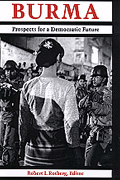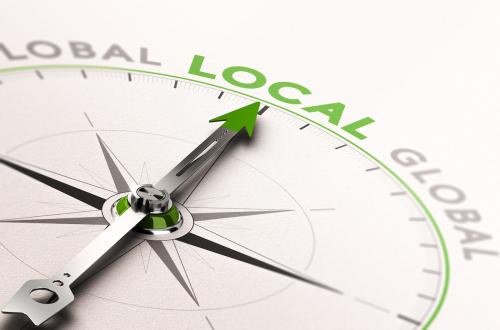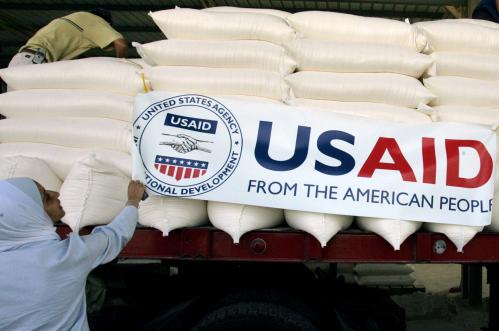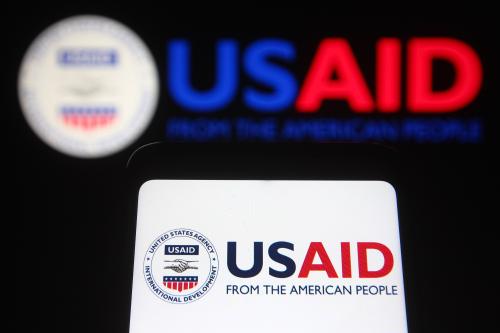The December 2004 tsunami that devastated the province of Aceh in Indonesia was a human tragedy but a political blessing in the form of a peace agreement. What are the chances that the dark cloud of Cyclone Nargis, which slammed Myanmar/Burma on May 3, will have the silver lining of being a catalyst for political change?
When the 2004 tsunami struck in Indonesia, the government had been fighting a secessionist movement in Aceh for more than four decades. The province had been under martial law for years and was off-limits for most international human rights groups, humanitarian aid organizations, and reporters. Susilo Bambang Yudhyono, who became president of Indonesia barely two months before the tsunami, took advantage of the disaster to open up Aceh (after some hesitation) and initiate negotiations with the secessionists. The results were one of the largest disaster recovery and reconstruction efforts in modern times, as well as th peace agreement which lead to the election of a former secessionist leader as governor of the province.
In the past two decades, over 200 million people per year have been affected by natural disasters. As the earth’s population increases and its atmosphere warms, floods, typhoons and hurricanes will undoubtedly occur more often, and will certainly have political consequences.
Recent experience suggests two links between disasters and politics. First, the more severe the disaster the greater the odds it will be politically destabilizing. Second, the odds of instability are greater in countries that have less developed political and economic systems.
On both counts, the odds of a break with the past in Myanmar should be high. From a meteorological perspective, Cyclone Nargis may not have been as severe as Hurricane Katrina, but Myanmar had experienced nothing comparable for generations, if ever. Politically and economically, Myanmar is only challenged by North Korea for the distinction of being the least developed country in Asia.
During the first ten days after Nargis swept through a good portion of Myanmar’s best rice-producing region (the Irrawaddy Delta) and across the country’s largest city (Yangon), the military rulers allowed only a trickle of foreign assistance to enter the country. First-hand reports have painted grim pictures of bodies floating in canals and homeless families moving to camps with inadequate facilities. External pressure on the regime has mounted to open the country to disaster relief teams from U.N. agencies, bilateral government agencies, and international NGOs. Given the abysmal record of the military regime in meeting the basic human needs of the country’s 50 million citizens over the past 45 years, foreign help (experts, food and material, money) will be necessary to avoid a great deal of needless suffering and a long recovery.
Despite the experience in the rest of the world, however, the odds are that Cyclone Nargis will have no discernible impact on the power structure in Myanmar. Indeed, the military leadership may gain more strength from the referendum on a new constitution held on May 10 than it loses from its lame efforts to help victims of the cyclone. This same regime after all has kept Aung San Suu Kyi under house arrest for more than ten years, moved the capital on a whim, and put down the mass protests led by monks last September.
We live with a world order that has conflicting principles. One is the long-standing principle of non-interference in the internal affairs of sovereign nations. By this principle, the government of Myanmar has the right to assume responsibility for repairing the damage caused by Cyclone Nargis and to decide what help to accept or reject from foreign sources. In the aftermath of Hurricane Katrina, the U.S. government would have relied on the same principle to reject any aid from the United Nations, or any foreign government, that was conditioned on ceding responsibility for overseeing the delivery of the aid.
The other and much more recent principle is the right of the international community to help victims of “crimes against humanity” who are being neglected by their governments, either deliberately or because they lack the capacity to help. While the principle of non-interference goes back to the founding of the United Nations, the “responsibility to protect” (R2P) only became part of international law through a U.N. General Assembly resolution in 2005. Furthermore, R2P was created to guide international action when confronted with mass atrocities, not natural disasters, epidemics, or similar problems. The one case where it has been applied—Darfur—is not yet a success story, and any attempt to extend the R2P concept would be opposed by many U.N. members. Such an attempt could even critically weaken support for R2P in cases of genocide.
It seems likely, then, that the Myanmar regime will continue to refuse much of the assistance offered by foreign governments and international NGOs. Now the best hope for the victims of Cyclone Nargis may be that Myanmar’s ASEAN partners, together with neighbors China and India, will find enough non-threatening ways of delivering the right kind of aid before it’s too late.







Commentary
Op-edCyclone Nargis: Catalyst for Change in Myanmar?
May 16, 2008